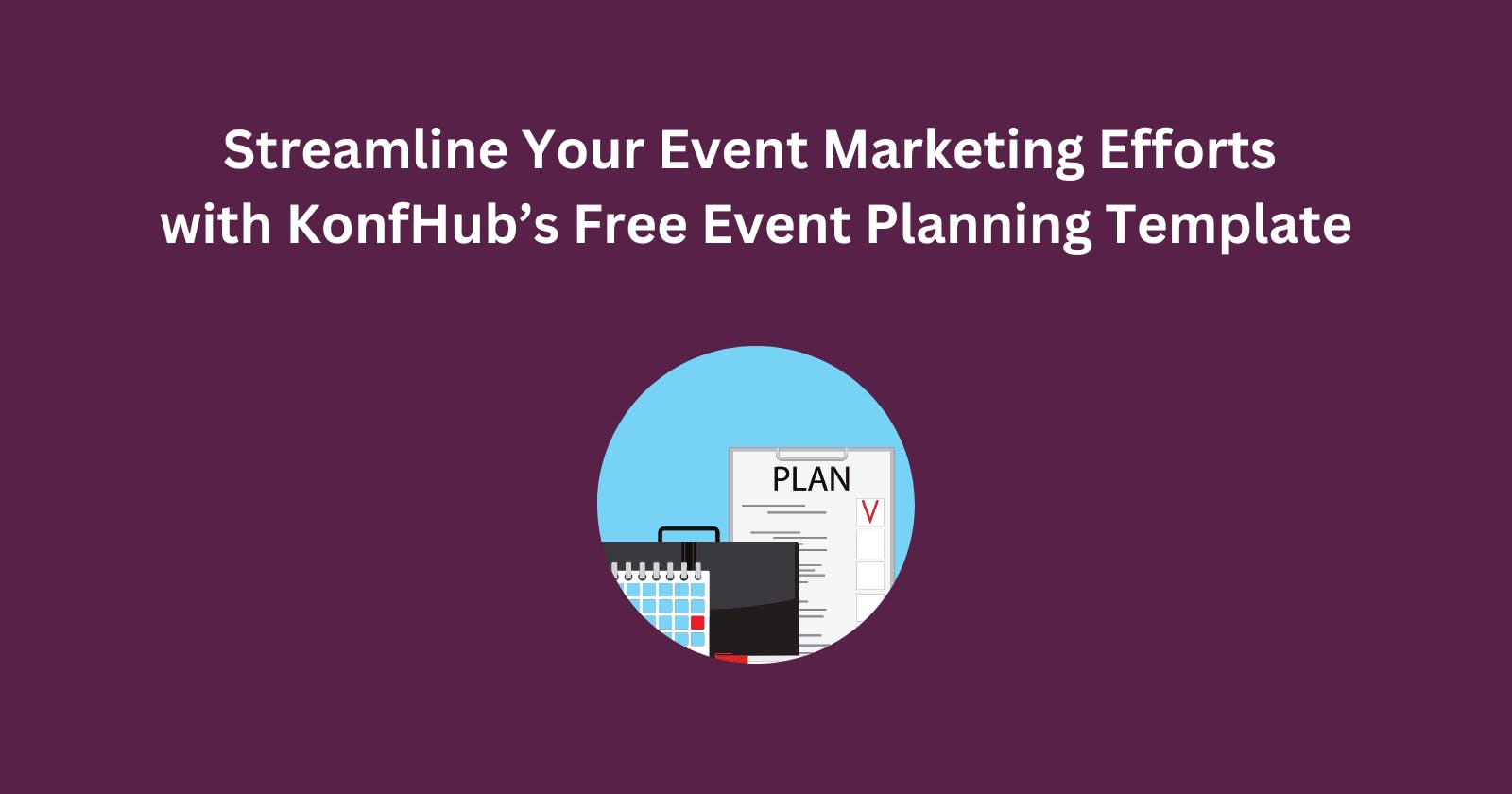Streamline Your Event Marketing Efforts with KonfHub’s Free Event Planning Template
Organizing a successful event requires meticulous planning and strategic marketing efforts. By starting your event marketing plan several months in advance, you can lay a solid foundation for a successful campaign. Follow these steps to create a comprehensive event marketing plan that maximizes attendance and engagement.
6 Months Before the Event
- Define Your Goals
Determine the objectives of your event. Whether it's increasing attendance, generating leads, or raising brand awareness, clearly define your goals to guide your marketing strategy.
- Identify Your Target Audience
Identify your target audience and segment them based on demographics, interests, and behavior. Understand their needs and preferences to tailor your marketing messages effectively.
- Choose Your Marketing Channels
Research and select the marketing channels that are most relevant to your audience and goals. Consider options such as email marketing, social media, content marketing, paid advertising, and influencer partnerships.
4 Months Before the Event
- Develop Key Messages
Craft compelling key messages that communicate the unique value proposition of your event. Highlight the benefits of attending and emphasize why it's a must-attend experience for your target audience.
- Create Your Marketing Collateral
Design and create your marketing collateral, including event flyers, posters, brochures, and digital assets. Ensure that your branding is consistent across all materials and channels.
- Build Your Event Website
Create a dedicated event website or landing page where attendees can learn more about your event and register. Optimize the website for search engines and mobile devices to enhance visibility and accessibility. Drive event registrations by launching referral contests, paid campaigns, Whatsapp campaigns etc.
2 Months Before the Event
- Launch Your Email Campaign
Start your email marketing campaign to promote your event to your target audience. Send personalized invitations, updates, and reminders to encourage registrations and engagement.
- Engage Your Audience on Social Media
Ramp up your social media presence and engagement by sharing event updates, sneak peeks, and behind-the-scenes content. Encourage followers to interact, share, and RSVP to build buzz around your event.
- Collaborate with Partners and Influencers
Partner with industry influencers, sponsors, and collaborators to extend your reach and credibility. Leverage their networks and audiences to promote your event and attract new attendees.
1 Month Before the Event
- Implement Paid Advertising Campaigns
Launch targeted paid advertising campaigns on platforms such as Google Ads, Facebook Ads, and LinkedIn Ads. Allocate your budget strategically to maximize reach and conversions.
- Finalize Event Logistics
Confirm event logistics, including venue arrangements, catering, audiovisual equipment, and staffing. Ensure that everything is in place for a seamless and memorable attendee experience.
- Continue to Engage Your Audience
Maintain momentum leading up to the event by continuing to engage your audience with timely updates, countdowns, and exclusive offers. Encourage last-minute registrations and ticket sales.
1 Week Before the Event
- Send Final Reminders
Send final reminders and logistical details to registered attendees to ensure a smooth event experience. Include important information such as parking instructions, agenda updates, and contact information.
- Prepare Your Team
Brief your event staff and volunteers on their roles and responsibilities. Conduct a walkthrough of the event venue to familiarize everyone with the layout and flow of the event.
Post Event Activities
- Follow Up with Attendees
Send post-event communications to thank attendees for their participation and gather feedback on their experience. Use this feedback to evaluate the success of your event and inform future planning efforts.
Try CertHub to collect feedback
- Measure and Analyze Performance
Analyze key performance indicators (KPIs) such as attendance, engagement, and conversions to assess the effectiveness of your event marketing efforts. Identify areas of improvement and lessons learned for future events.
By following this step-by-step guide and starting your event marketing planning several months in advance, you can create a comprehensive and effective marketing strategy that drives attendance, engagement, and success for your event.
Here’s a free event planner to help you with your event planning. Try KonfHub Now!
Happy Eventing!

